Last week, the NFL announced several proposed rule changes to be discussed at the recently held annual league meeting in Phoenix, AZ.
Seventeen proposals were submitted in total — nine by separate NFL clubs and eight more by the NFL Competition Committee.
Of the 17 proposals, nine changes were adopted to the NFL rule book for the upcoming season.
These are the adopted changes for the 2023 NFL season:
- By Philadelphia; amends Rule 5, Section 1, Article 2, to permit the use of zero (“0”) as a jersey numeral; to allow kickers and punters to use any jersey numeral between 0-49 and 90-99.
- By Los Angeles Chargers; amends Rule 4, Section 6, Article 3 and Section 7, Article 4, to make the adjustment of the play clock following an Instant Replay reversal consistent with other timing rules.
- By Houston; amends Rule 15, Section 1, Article 2, to expand the Replay Official’s jurisdiction to allow for review on failed fourth down attempts.
- By Competition Committee; to change the definition of a launch to leaving one or both feet.
- By Competition Committee; to make the penalty for tripping a personal foul.
- By Competition Committee; to make the penalty for illegally handing the ball forward consistent with other illegal acts, such as illegal forward passes.
- By Competition Committee; to make the penalty for illegal punts, drop kicks, or placekicks consistent with other illegal acts, such as illegal forward passes.
- By Competition Committee; to prevent the offense from benefitting by an extension of the half as a result of their foul.
- By Competition Committee; to clarify use of the helmet against an opponent by removing the “butt, ram, spear” language from Article 8 and incorporating those actions into Impermissible Use of the Helmet.
IMPACT OF THE NFL RULE CHANGES
At a quick glance, it’s easy to see that some rules will impact gameplay more than others.
Most of the rules submitted by the Competition Committee, for example, affect what is written in the rule book more than they will affect what is seen on the field.
With the rule updates, the flow of the game won’t change much. However, a few of the changes will change the typical outcomes of a few different scenarios.
MAKING THE PENALTY FOR TRIPPING A PERSONAL FOUL
Previously, the penalty for tripping was 10 yards.
Now that it is a personal foul, it will result in moving the ball 15 yards from the previous spot in one direction or the other depending on whether the offense or defense committed the infraction.
If the act of tripping was committed by a defensive player, the offense will receive an automatic first down along with the 15 yards.
Also of note is the fact that tripping was added to Rule 12, Section 2, Article 14.
Previously, that article referred to striking, kicking, or kneeing opponents. The addition of tripping to this list of unsportsmanlike actions means that a player can be ejected for tripping if the act is deemed egregious by officials.
Although there has been no mention of amending Rule 12, Section 4 (Automatic Disqualification), since punching and kicking are mentioned in that section, tripping may be handled in the same way as those actions.
That means a player could be disqualified if they are penalized twice for tripping or for tripping and another personal foul.
These changes suggest that the Competition Committee, and perhaps officials as well, believe tripping should be dealt with more seriously than it has been in the past.
It will be interesting to see if there is a correlated uptick in calls of tripping penalties.
We’ve also seen instances of players being tripped but remaining upright and attempting to finish their plays.
With the added benefit of an automatic first down and a personal foul against an opponent, will players be less likely to resist the impact of an opponent’s foot or leg — obstructing their path or movement?
REPLAY OFFICIAL REQUEST FOR REVIEW ON FAILED FOURTH DOWN ATTEMPT
This amendment, submitted by the Houston Texans, expands the ability of the Replay Official to review a play when on-field officials rule that the offense failed to reach the line to gain on fourth down.
This change should prevent coaches from having to use a challenge in such situations.
If it is a close call, similar to what has happened in goal-line situations, it should automatically be reviewed to ensure the correct call was made.
Allowing Replay Officials to review these fourth-down scenarios should speed up the pace of the game in these situations.
It will also free up the coaches’ challenges to be used for other, less common, circumstances.
REJECTED RULE AMENDMENTS
The proposed rules that would have had the biggest impacts on gameplay were not adopted at the league meeting.
Most notably, the proposal submitted by the Los Angeles Rams to “make fouls for Roughing the Passer called on the field subject to replay assist and/or review by a coach’s challenge,” was rejected outright.
A couple of other proposals that were not adopted at the league meeting will be reviewed at the owners’ meeting in May.
One of those is the rule amendment from the Philadelphia Eagles to allow scoring teams to maintain possession of the ball by gaining 20 yards in a single down.
Another is the Detroit Lions’ bylaws proposal to allow, in certain qualifying situations, for the activation of an emergency third quarterback from a team’s inactive list or practice squad.
ROSTER REDUCTION DATES
Another very impactful change that was approved during the annual league meeting was not a rule or bylaw amendment. It was a resolution submitted by 25 different teams including the Dallas Cowboys.
The resolution would change how rosters are typically handled in the preseason.
In the past, there have been three different dates by which clubs were expected to cut down their rosters — from 90 to 85 to 80 and ultimately to 53.
With the adopted resolution, there will now be a single roster cut-down date.
On the Tuesday following the final preseason weekend of games (August 29 in 2023), teams will have to cut their rosters down from 90 to 53 players.
Player development and roster management were cited as reasons for this resolution.



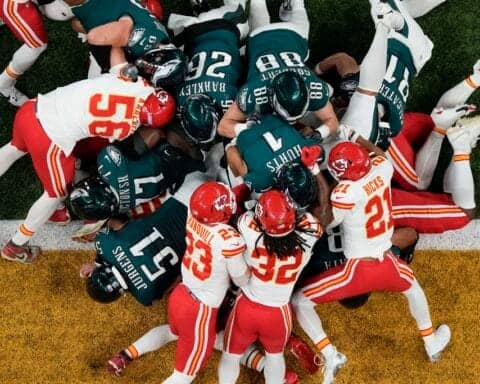
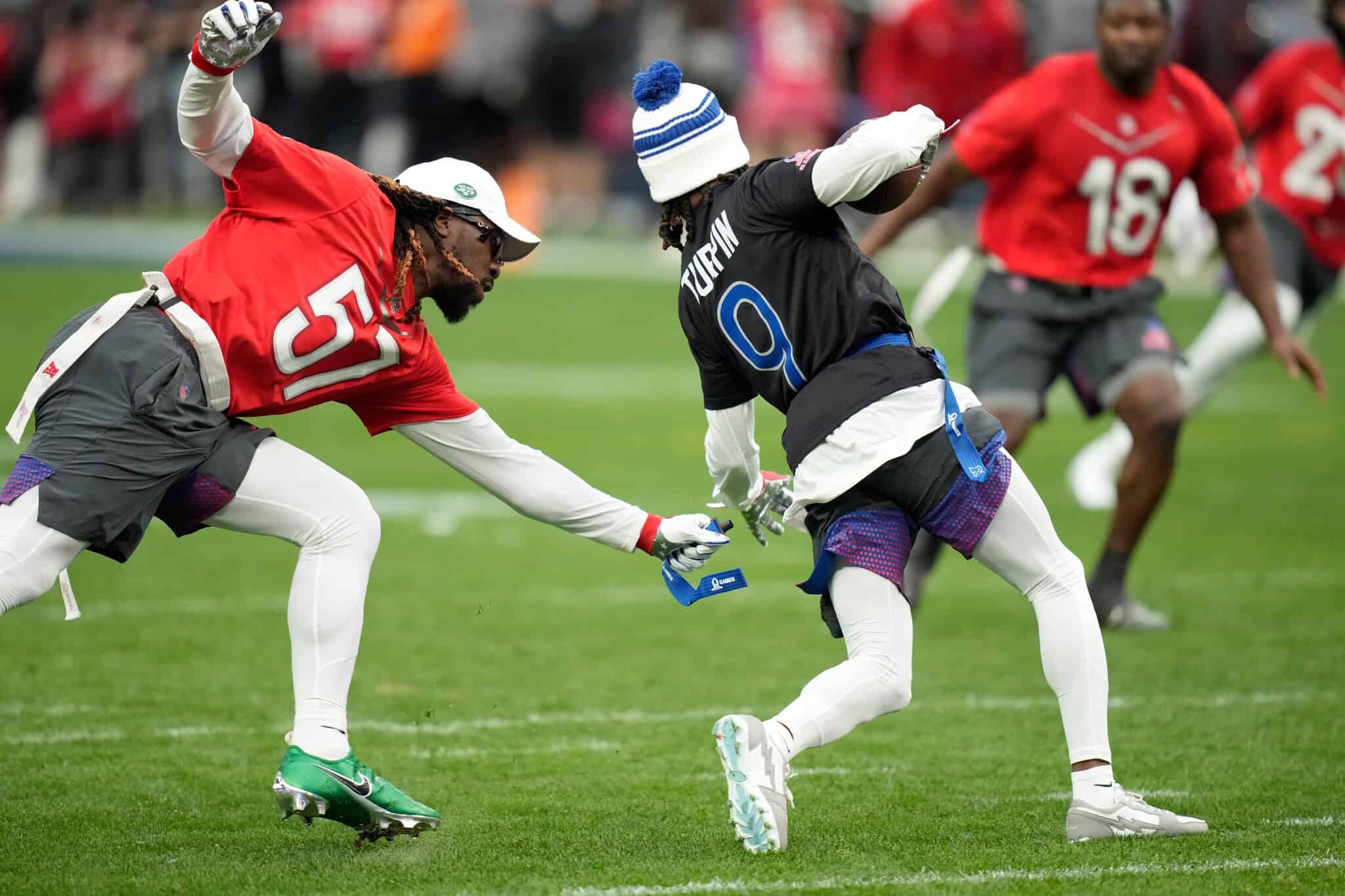
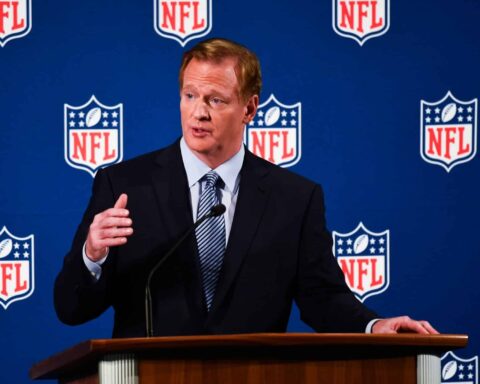
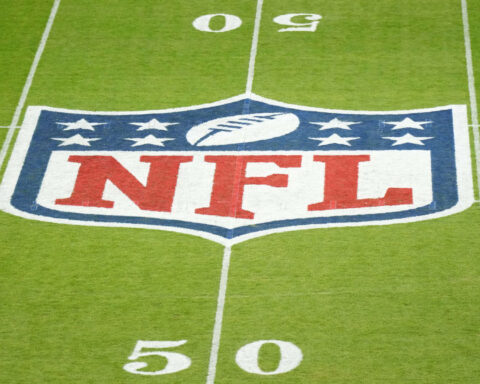
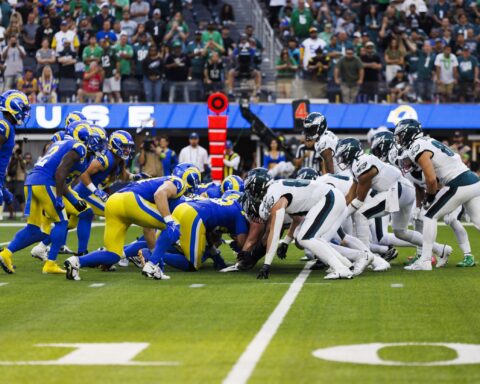
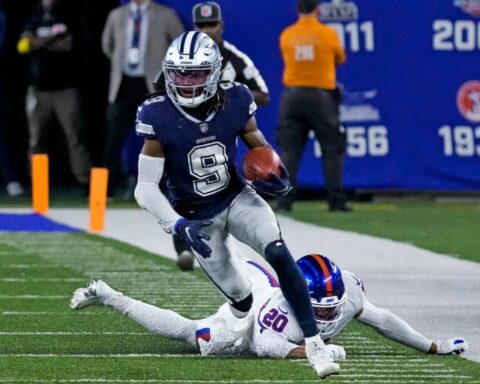


9 more to make the game more pussyfied
lets just make it flag football, them pay them a lot less.
Is XFL still this is just ridiculous just give them a skirt for a uniform
Why more rules?? Hell the refs can’t keep up with the ones we already have. The REAL RULE THAT DIDN’T PASS WAS THE ROUGHING THE QUARTERBACK USING INSTANT REPLAY TO SEE IF THEY WERE ACCTULLY ROUGHED!! CAUSE THERE WAS ALOT OF THOSE PENALTIES THAT SHOULD’VE NEVER BEEN CALLED.